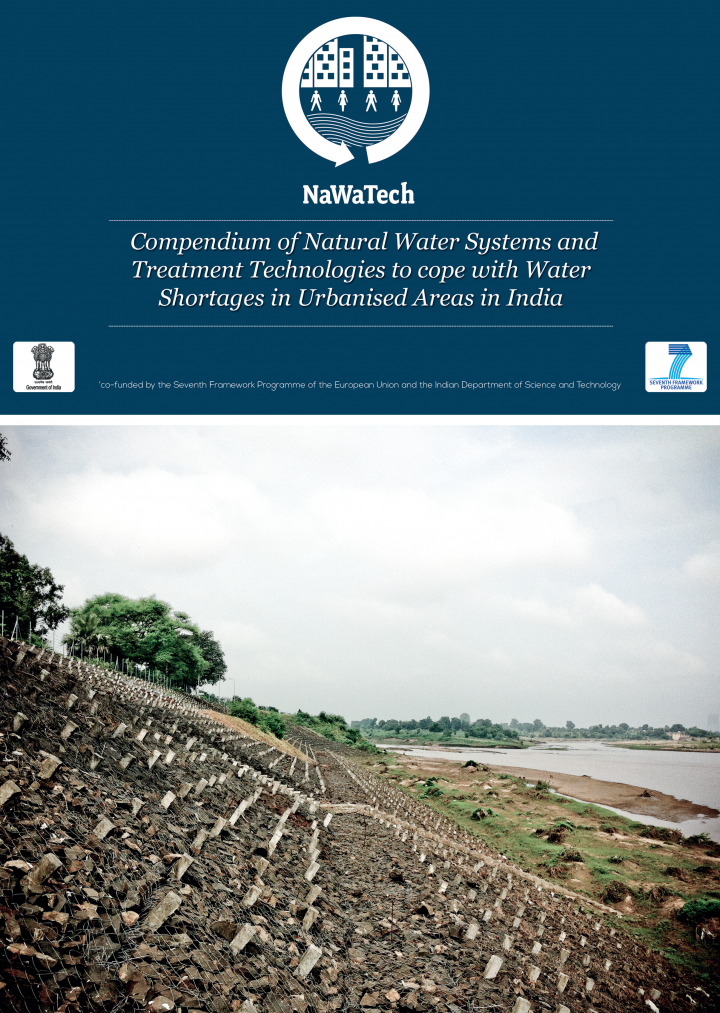Natural water systems and treatment technologies to cope with water shortages in urbanized areas in India NaWaTech Compendium of Technologies Dillon, L. B. et al. (2013)
Providing adequate water supply and sanitation, particularly in urban areas, is a challenging task for governments throughout the world. This task is made even more difficult due to predicted dramatic global changes. Population growth, urbanisation, increasing industrialisation, climate change and a steep increase in water consumption are putting pressure on urban water resources. In order to cope with water shortages in urban areas, there is a need for a paradigm shift from conventional end-of-pipe water management to an integrated approach. This integrated approach should include several actions such as: information interventions over the entire urban water cycle (considering wastewater and freshwater both as integrated part of water resources); (ii) optimisation of water use by reusing wastewater and preventing pollution of freshwater source; (iii) prioritisation of small-scale natural and technical systems, which are flexible, cost-effective and require low operation and maintenance.
Taking these facts into account, the project NaWaTech “Natural Water Systems and Treatment Technologies to cope with Water Shortages in Urbanised Areas in India” was created. This Indian-European research and development initiative aims to explore, assess and enhance the potential of natural and compact water and wastewater treatment systems in order to improve their performance and reliability to cope with water shortages in India.
The Compendium of NaWaTech Technologies is an effort to pinpoint and describe water and wastewater technologies that could enable the sustainable water management in Indian cities. It is intended as a reference for water professionals in charge of planning, designing and implementing sustainable water systems in the Indian urban scenario, based on a decentralised approach. The NaWaTech Compendium does not aim to be an engineering manual for the detailed design and construction, and the objective of the NaWaTech consortium is to inspire practitioners, igniting the shift from the conventional end-of-pipe thinking to intelligent practices to come up with sustainable solutions to the water and sanitation crisis in urban India. This piece of work is the result of a joint effort of the specialists of the NaWaTech consortium, and was realised thanks to the support of the Department of Science and Technology of the Government of India and the European Commission through its 7th Framework Program.”
Bibliographic information
Dillon, L. B. et al. (2013). Natural water systems and treatment technologies to cope with water shortages in urbanized areas in India NaWaTech Compendium of Technologies epubli GmbH, Berlin, Germany
Filter / Tags
Sanitation systems and technology options (WG4)Cities (WG6)Biogas systems Constructed wetlandsPeri-urbanUrban (entire city)PractitionersEnglish

